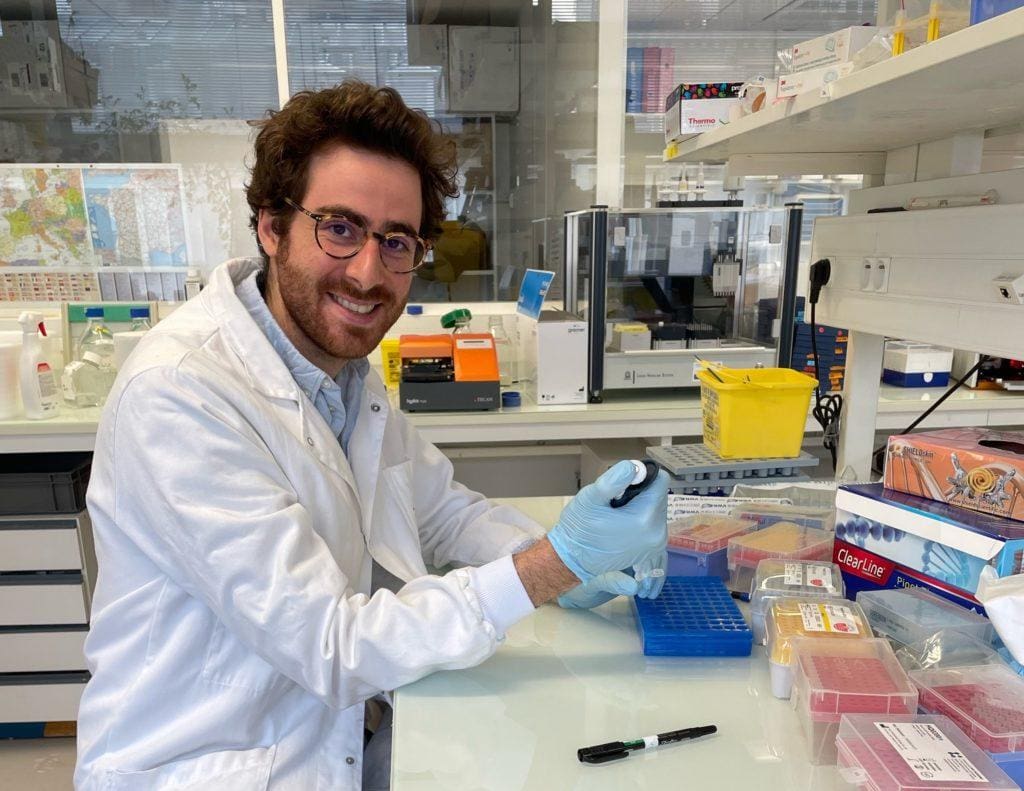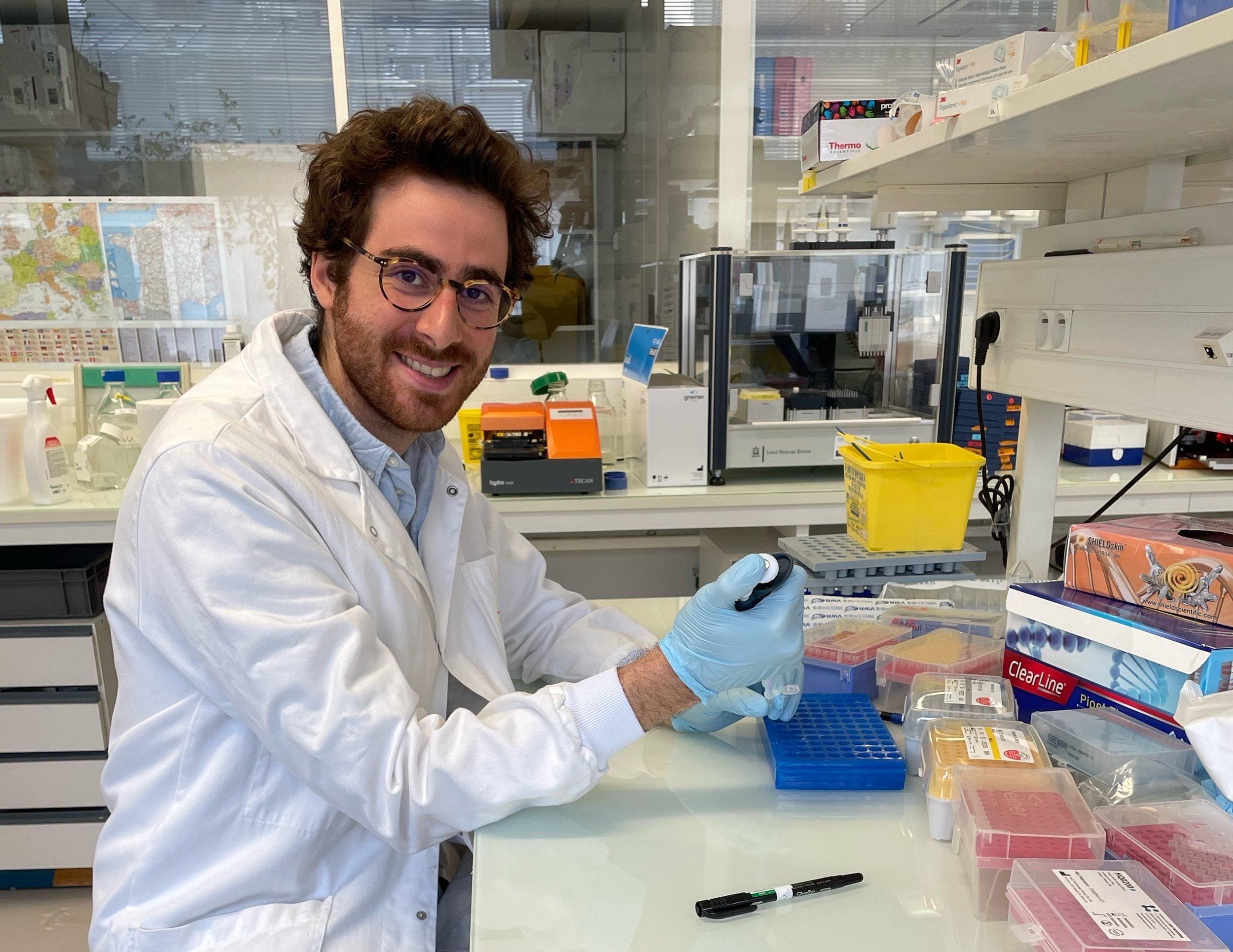In a recent Science podcast, Michelson Philanthropies & Science Prize for Immunology recipient, Dr. Paul Bastard discussed his groundbreaking research on COVID deaths and advocated for increased funding for young scientists.

By Justin Chapman
Supporting young scientists at the beginning of their career creates the best opportunities to build the future of science, Dr. Paul Bastard said on a recent Science podcast.
Those are the researchers “who probably have a lot of new ideas and who could make discoveries and become the next generation” of groundbreaking scientists, he said.
Sean Sanders, director and senior editor for Custom Publishing at Science, interviewed Dr. Bastard on the podcast about his Covid research and about winning the inaugural Michelson Philanthropies & Science Prize for Immunology, a $30,000 award for transformative research in human immunology with trans-disease applications to accelerate vaccine and immunotherapeutic discovery. Two finalists, Dr. Scott Biering of UC Berkeley and Dr. Lisa Wagar of UC Irvine, each received $10,000 prizes.
“I’m hugely grateful for this support at this stage of my career,” Dr. Bastard said. Read more about Dr. Bastard’s research here, and listen to the full conversation here.
Dr. Bastard is a chief resident in the Department of Pediatrics at the Necker Hospital for Sick Children in Paris, France, and also conducts research at the Imagine Institute in Paris and the Rockefeller University in New York. His research focuses on the genetic and immunological determinants of severe viral diseases, including the causes and consequences of autoantibodies against Type I interferons.
“What we tried to do is to understand why people die of COVID and more generally why people suffer from severe infection,” Dr. Bastard said. “To do that, we created an international consortium to recruit as many individuals as possible, either with very severe infection who are in the ICU, or who have asymptomatic infection. Then we sequenced all their exomes and tried to look for mutations that would impede the antiviral response.”
“When you have an idea, pursue it. Most of our ideas are not going to be the right ones, but some of them might. So, if you believe in it, just go for it.”
—Dr. Paul Bastard
They found that 3 to 5 percent of the individuals in the ICU had a mutation explaining why they suffered from severe Covid. They also looked for autoantibodies that could block the antiviral response itself. They screened several large cohorts and found that between 15 to 25 percent of individuals who are in the ICU because of Covid have these autoantibodies, explaining why they suffered from severe Covid.
“This is really important, because these can be easily detected, and perhaps even treated in the individuals in which we find them,” he said.
Sanders asked whether these autoantibodies are common in the general population, or only specific to people with certain diseases. Dr. Bastard said they’re rare in the general population, especially in people under 65 years old, showing up in just .2 or .3 percent of healthy individuals. After 70 years old, the frequency increases to more than 4 percent.
Dr. Bastard said he hopes winning the prize will help bring his research directly to physicians and thus to their patients as soon as possible. He gave advice for other early-career researchers to give them the best chance of success in their careers as well as in their potential application for the Michelson Prize next year.
“When you have an idea, pursue it,” he said. “Most of our ideas are not going to be the right ones, but some of them might. So, if you believe in it, just go for it. When writing your essay for the prize, make it as simple as possible, and readable for your family. If they can read it, everyone can read it and enjoy it.”
Going forward, Dr. Bastard wants to continue both clinical practice in hospitals and basic research in the lab.
“I’d really love to continue working on these autoantibodies that explain severe infections,” he said. “We’ve understood partially how they can cause severe viral diseases, but now we want to understand why they’re here. Why did they arrive in certain individuals? Can they have any beneficial role? If we continue to understand the cause of severe infectious disease, perhaps we can also understand the cause of severe autoimmune diseases that are also very frequent.”

